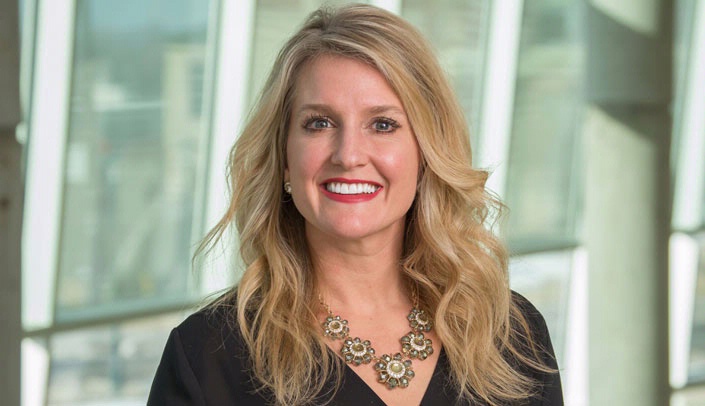Sasha Shillcutt, M.D., has published nearly 40 scientific papers in research journals.
This month, she got her first publication in the Journal of the American Medical Association — for a piece of creative nonfiction.
Dr. Shillcutt’s essay, “Rounds,” grew from a journal entry that was several years old and deals with the aftermath of losing a patient.
Dr. Shillcutt recognized that, following a tragic workday, she had developed a routine.
“I would go upstairs in the middle of the night and sit with my kids on their bed and watch them sleep,” she said. “And I realized this had become a mechanism for me to help me process.”
Dr. Shillcutt has a popular blog, “Brave Enough,” that deals with the challenges of being a woman physician as well as a mother, but this piece didn’t seem to fit the blog’s tone. So she reached out to a colleague at Harvard, who had published several essays and books, for advice.
“She encouraged me to put a little more work into it,” Dr. Shillcutt said. “Then I submitted it to the journal, and it was accepted.”
Not only was it her first professionally published piece of creative nonfiction, it was the quickest publication acceptance she’d ever gotten.
“I have published close to 40 scientific manuscripts, and that is my style of writing. Then I started blogging because I love to write creatively,” she said.
Switching from the academic to creative style of writing and back was so challenging, she hired a writing coach. But now, she said, her creative writing skills have improved her research writing, as well.
“There is humanity in medicine, but we as physicians often get so science-minded — in the way we talk and relate to people — that we struggle with processing the ‘humanity’ side,” she said. “The way that I process is writing.”
Dr. Shillcutt has received reactions from around the world since the piece was published.
“I think the piece resonated with people,” she said. “It’s not something you talk about (how you process loss).”
She plans to continue both her creative nonfiction and her scientific writing, she said.
“Writing is very important to me.”

Thank you for sharing your experiences and your heart – I was deeply moved by this.
The essay is beautiful and heartbreaking. Thank you for writing it and sharing that part of yourself.
Beautiful piece. Moving and insightful. Thank you.
I listened to your story when you were the keynote speaker at the Women's Health Conference last year but this article brought the experience to a whole new level. Thank you for your willingness to share just how much you care about your patients and their families.